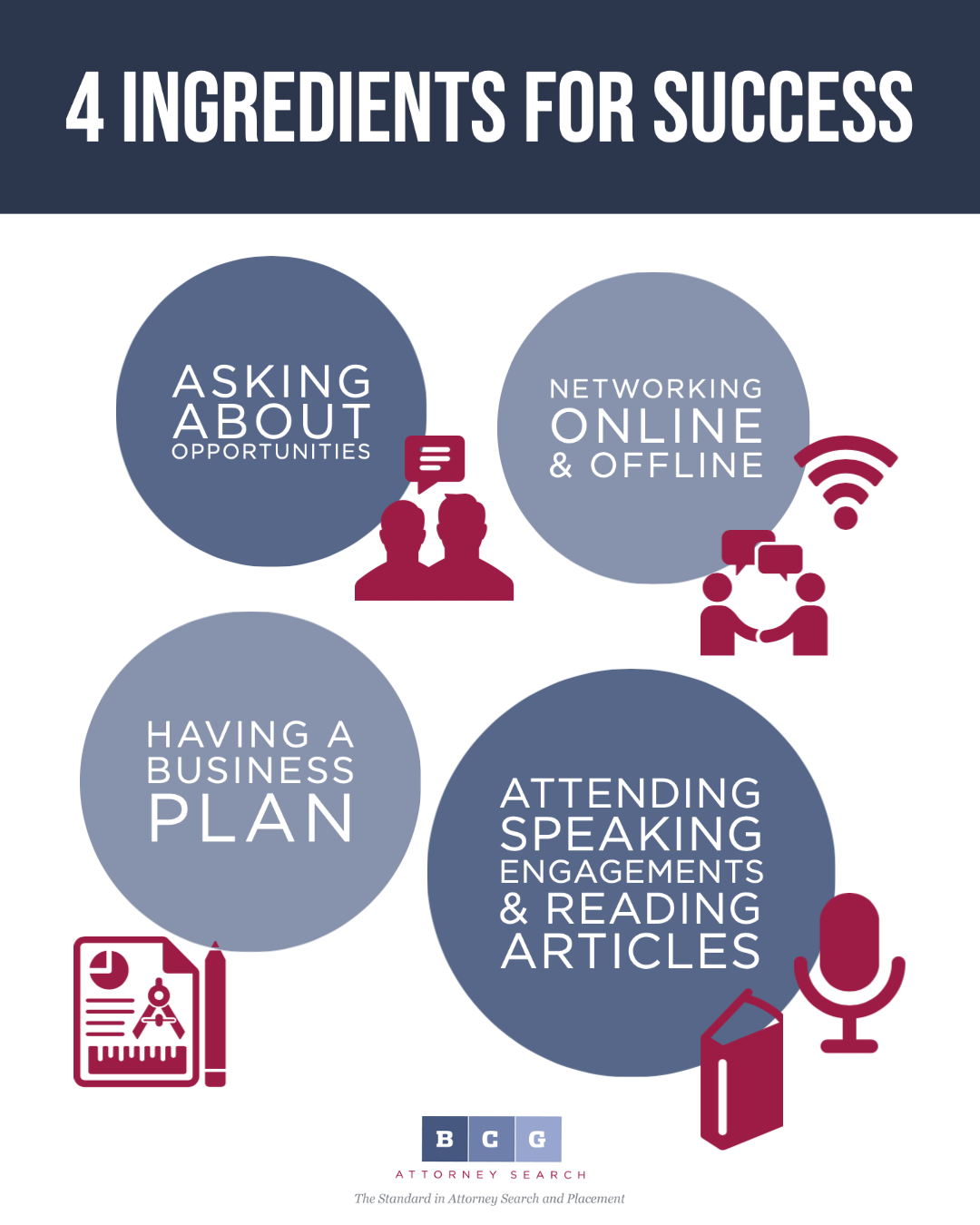
Ask and Ye Shall Receive
One of the greatest distinguishing factors among partners who successfully and regularly originate business is that they ask for it. In any kind of service-oriented profession there are three steps that must be taken before the ''ask.'' They are:

Make a Connection
Relationships are everything. Clients and potential clients are first and foremost human beings. Sometimes it is uncomfortable for people to request what they want, and that should never be the focus of a meeting or a conversation when developing business. First a connection needs to be made, whether it is professional or a few polite questions that lead to common ground. Do you know someone in common? Are you both golf fanatics? Good interviewers always break the ice, and asking for business is a job interview, as is serving it and building those ties on current matters. Social decorum, politeness, and friendliness are as important as power and expertise. So behave with class.





